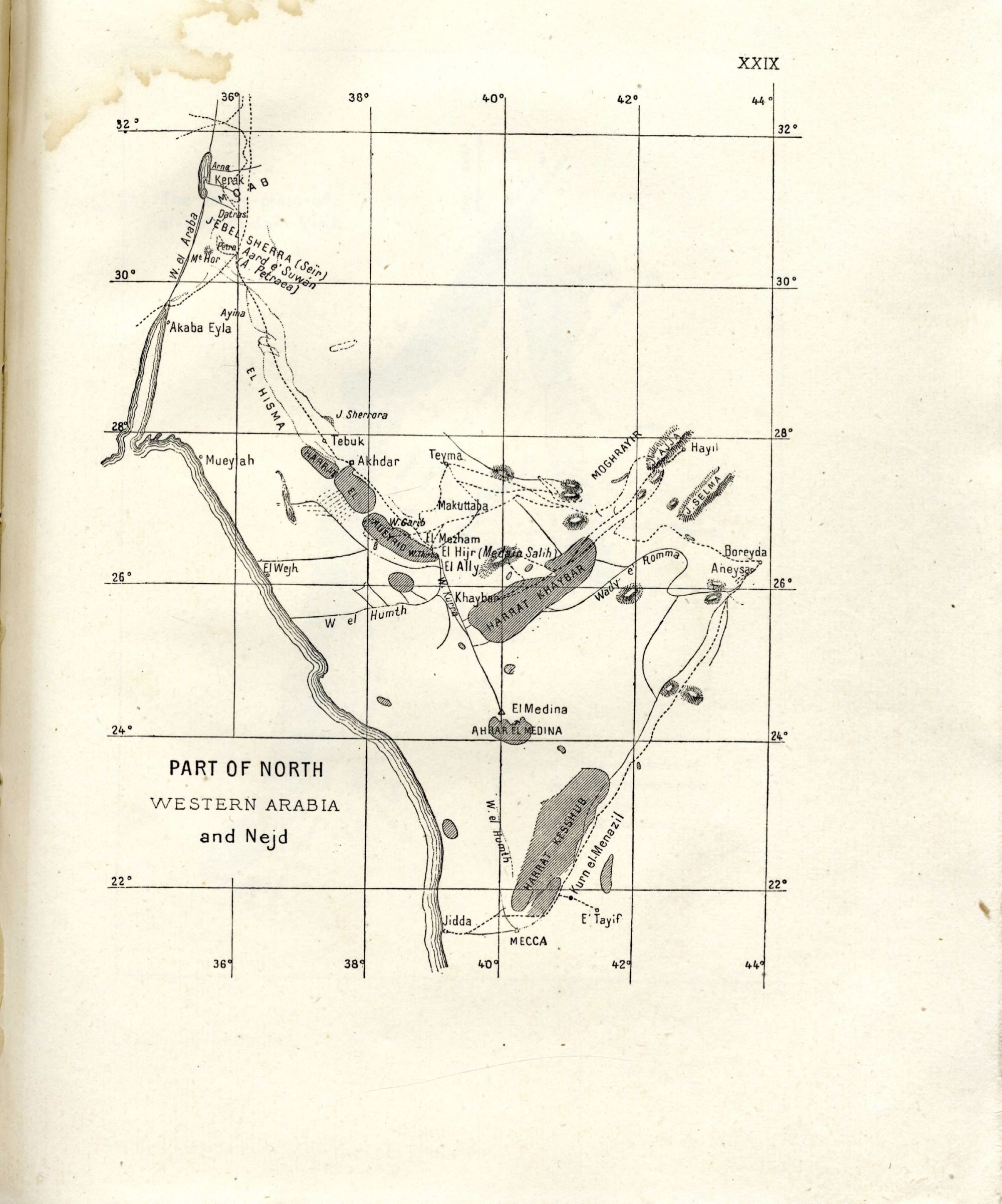Documents Epigraphiques recueillis dans le Nord de l’Arabie. Notices et Extraits des Manuscrits de la Bibliotheque Nationale et Autres Bibliotheques. Publiés par l’Institut National de France.
Doughty, Charles & Ernest Renan.
Synopsis
This journey was the beginnings of his classic account “Travels in Arabia Deserta” which was first published in 1888. The publication of this volume followed long negotiations during which Doughty tried, unsuccessfully, to sell the Nabatean inscriptions he brought back with him from North Africa in the years 1876-77, to the British Museum and then to the Royal Geographical Society, London and the Royal Museum of Berlin. The Académie des Inscriptions in Paris were preparing to publish, under the direction of Ernest Renan, A Corpus of Semitic Inscriptions. Doughty accepted their offer to publish this volume quickly (in response to pressure from Huber’s second visit to Northern Arabia) and for no remuneration apart from 150 free copies. Renan and the epigraphists J. Derenbourg, de Vogüé, P. Berger, J. Halévy and Clermont Ganneau translated the twenty-seven Nabatean texts copied in Medeian-Saleh. These inscriptions in Aramaic show that most of the surnames are in Arabic, which proves the origins of those Nabateans.
Doughty deposited his copies of the book with Klincksieck, the bookseller recommended by Renan, but by the end of 1885, only thirty-one copies had been sold. Some of the plates in the book were later used for Arabia Deserta, and Cambridge University Press had to borrow them from the Académie for a fee, which aroused Doughty’s indignation on the grounds that he had originally supplied them for free.
Bibliographic reference: Macro 855.








